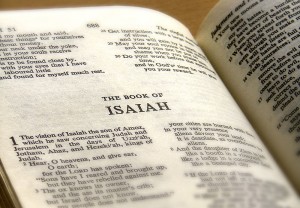 FRANKFORT — A nationally-recognized Christian legal organization has sent a letter to school districts throughout the state of Kentucky in an effort to combat an attempt by the American Civil Liberties Union (ACLU) to end the distribution of Gideons Bibles in public schools.
FRANKFORT — A nationally-recognized Christian legal organization has sent a letter to school districts throughout the state of Kentucky in an effort to combat an attempt by the American Civil Liberties Union (ACLU) to end the distribution of Gideons Bibles in public schools.
William Sharp of the ACLU had sent a three-page letter to 174 Kentucky school districts in April to address an alleged “widespread and persistent practice in Kentucky’s public elementary schools” of permitting the distribution of Gideons Bibles to students. Sharps stated that some parents had expressed opposition to Gideons International’s efforts, which have been sanctioned for a number of years by school officials.
“[T]his practice violates both federal and state constitutional guarantees barring governmental endorsement of religion, and it also impermissibly encroaches upon parents’ prerogative to direct the religious upbringing of their children,” the letter asserted. “By allowing an outside group to distribute sectarian materials directly to public elementary school students during school hours, school officials create the impression that the school endorses those religious views which subjects the students to ‘subtle coercive pressure’ to accept the proffered religious materials.”
The organization advised that it was conducting a statewide investigation into the issue and that it had submitted Open Records Act requests to examine school policies regarding the distribution of religious materials.
However, the national Christian legal organization Alliance Defending Freedom (ADF) disagrees with the ACLU’s contention that Gideon International’s practices are unlawful, and has therefore sent a counter letter to the same school districts throughout Kentucky.
“We write to correct several misrepresentations made in the ACLU’s letter and to inform you that allowing religious community groups, like the Gideons, to distribute literature at tables in the school hallways or by the entrances and exits on an equal basis with their secular counterparts fully complies with the Establishment Clause,” wrote a coalition of nine ADF attorneys last week. “Indeed, banning only religious community groups from distributing literature at public schools is clearly forbidden by the Free Speech and Free Exercise Clauses of the First Amendment.”
The organization then laid out case law from the Sixth and Fourth Circuits, which it states upheld the right to distribute religious literature in educational environments where secular material is permitted. It also advised district superintendents to reject the arguments made by the ACLU.
“Public schools should encourage, not shut down, the free exchange of ideas,” said ADF staff counsel Rory Gray. “That’s why the schools frequently allow a wide array of groups to distribute literature of various sorts to students. Singling out the Gideons while allowing other groups to distribute literature would be clearly unconstitutional.”
“Kentucky schools should not allow the ACLU to brow beat them into a constitutional violation,” added senior attorney Jeremy Tedesco. “The First Amendment does not allow religious speech to be singled out for discrimination.”
As previously reported, a school district in Jackson, Kentucky caved to demands to remove the Ten Commandments from its walls this past April after a prominent atheist group urged officials to “ensure that children are learning in a secular environment.”
“The display of religious materials, such as a painting of a religious figure or a copy of the Ten Commandments, in a public school violates the U.S. Constitution’s prohibition on the establishment or endorsement of religion by a public agency,” the Kentucky Board of Education conceded in a statement. “A school or district that displays copies of the Ten Commandments without the inclusion of other historical documents and not as part of a historical/comparative display is in violation of the U.S. Constitution.”
However, some note that the first textbook used in America even before its founding, The New England Primer, was largely focused on the Scriptures, and was brought to the nation by the Puritans. It used mostly the King James Bible as reference, and spoke much about sin, salvation and proper behavior.
“In Adam’s fall, we sinned all,” it read, in teaching children the alphabet, using Adam as an example of the letter A.
“Thy life to mend, this Book attend,” it continued for the letter B, referring to the Scriptures. “My Book and heart shall never part.”
“Godliness is profitable unto all things, having the promise of the life that now is, and that which is to come,” read another section. “Except a man be born again, he cannot see the kingdom of God.”
Become a Christian News Network Supporter...


